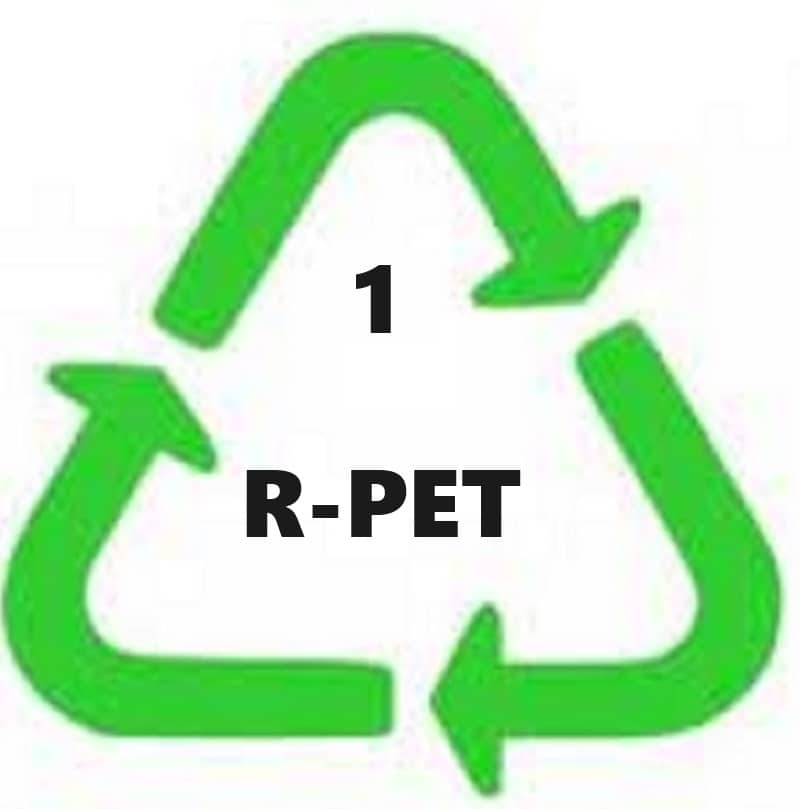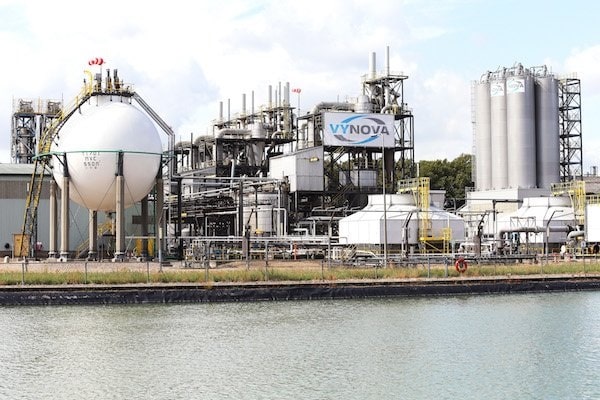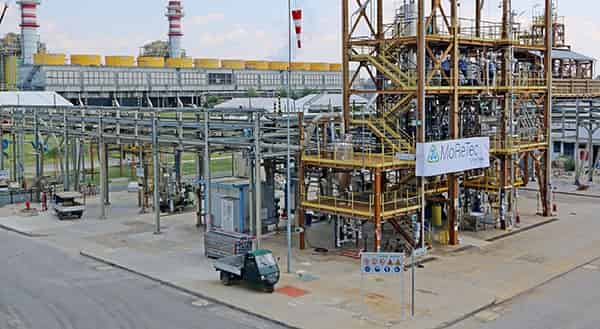Decarbonized plastics – Citroniq Chemicals, LLC has chosen Falls City’s Mid-America Rail Campus in Nebraska for its groundbreaking decarbonized plastics facility, set to be the world’s largest of its kind 06-11-2024
Decarbonized plastics
Citroniq Chemicals, LLC has chosen Falls City’s Mid-America Rail Campus in Nebraska for its groundbreaking decarbonized plastics facility, set to be the world’s largest of its kind

Vynova, controlled by International Chemical Investors Group (ICIG), has acquired the European Advanced Organics operations of Valtris Specialty Chemicals
Neste, Alterra and Technip Energies collaborate to offer standardized solution to build chemical recycling plants
- The partners aim to globally offer a standardized modular solution, based on Alterra’s proprietary discarded plastic liquefaction technology, to parties interested in building capacity for chemical recycling.
- Alterra and Neste will serve as technology providers, Technip Energies to design, engineer and deliver standardized plant solutions.
Neste, Alterra and Technip Energies have signed a collaboration agreement to advance the circularity of plastics by providing the industry a standardized technology solution for chemical recycling, also referred to as “advanced recycling”. Decarbonized plastics
The partners aim to globally offer a standardized modular solution, based on Alterra’s proprietary liquefaction technology, to parties interested in building capacity for chemical recycling. This solution will come in the form of readily designed and engineered liquefaction plant modules, which will allow for lower pre-investment costs, accelerated implementation time, high predictability on project economics and reduced overall capital costs. Contributing to more effective execution of chemical recycling capacity projects, the solution helps the industry to reduce dependency on virgin fossil resources and accelerate the circularity of polymers and chemicals.

LyondellBasell could triple chemical recycling
A new MoReTec plant is being considered at its Houston, Texas, refinery, with double the capacity of the one under construction in Germany. Decarbonized plastics
LyondellBasell is considering building a second chemical recycling plant with proprietary MoReTec technology at its Houston, Texas, refinery, as part of a plan to convert the site into a biorefinery announced last year (read article).
The announcement of the new MoReTec plant was made last Friday by CEO Peter Vanacker during the presentation of the financial results of the third quarter of 2024.
If the investment is approved – the final decision could be taken in 2026 -, LyondellBasell will triple its capacity for chemical recycling of plastic waste, after the construction of the pilot plant in Ferrara, in operation since 2020 (read article with video), and the upcoming start-up, in 2026, of the first industrial-scale plant, MoReTec-1, in Wesseling (Germany), with a capacity of around 50 thousand tons per year of pyrolysis oil, on which work began last September. Decarbonized plastics
The American plant, in fact, could have double the capacity, equal to 100,000 t/y. The purified pyrolysis oil produced in the future MoReTec-2 unit would be destined for cracking and polymerization plants in the region, thus supporting the production of CirculenRevive polyolefins.
The Houston hub conversion project also includes the retrofitting of some plants to be able to process biobased feedstock purchased from third parties, destined for the group’s olefin crackers, in place of fossil-based feedstock. This will result in polymers with the same properties and performance as conventional ones, but with a lower carbon footprint, distributed under the CirculenRenew brand. Decarbonized plastics
Confusion over R-PET legislation in Europe causes ‘chaos’ ahead of 2025
There are just over 70 days to go before all EU countries must include 25% recycled content in polyethylene terephthalate (PET) beverage bottles, yet the market was described as being in ‘chaos’ due to huge levels of uncertainty around the single-use plastics directive.
Speaking at the International Gate Summit, ICIS senior editor for recycling Matt Tudball said: “EU member state clarity on penalties has the potential to be a game-changer.”
Targets set out by the directive include:
- 77% separate collection for bottles by 2025, rising to 90% by 2029
- 25% mandatory recycled content in PET bottles from 2025
- 30% mandatory recycled content in plastic bottles from 2030
With less than three months until the 2025 target comes into effect, the industry is unclear on penalties for not reaching this goal. Decarbonized plastics
To date, no member state has clearly laid out what will happen if beverage brands do not increase recycled PET (R-PET) to 25%. However, if one or more of them does, this could be the catalyst that drives more converters, preform producers, and beverage brands to the R-PET market, Tudball said.
It is also unclear how each country will audit the volume of recycled material being used in bottles.

Chemical Recycling is Essential for Plastics Circularity, but Faces Challenges
Environmental imperatives drive the development of technologies for the chemical recycling of plastic waste, but significant hurdles – including economic viability, collection logistics and feedstock complexity – need to be addressed for chemical recycling to have a larger impact Decarbonized plastics
Plastic waste continues to be a major global environmental issue. While mechanical recycling, where plastic waste is ground up and remelted, remains the most prominent form of plastics recycling, its limitations (material degradation, contamination and performance) prevent it from enabling real plastics circularity. The field of chemical recycling of plastics, which aims to break down polymers into starting materials that are chemically equivalent to petroleum-derived feedstock, is a fast-evolving area that is critical for achieving true plastics circularity.
It is generally envisioned that chemical recycling will not replace mechanical recycling, but rather, will complement it . In cases where mechanical recycling can be effective, it will be used preferentially, since its costs are lower. However, because mechanical recycling cannot be used indefinitely, and is only effective with uncontaminated, single-component waste streams, chemical recycling technologies will continue to have wide-ranging opportunities. Decarbonized plastics

Decarbonized plastics


